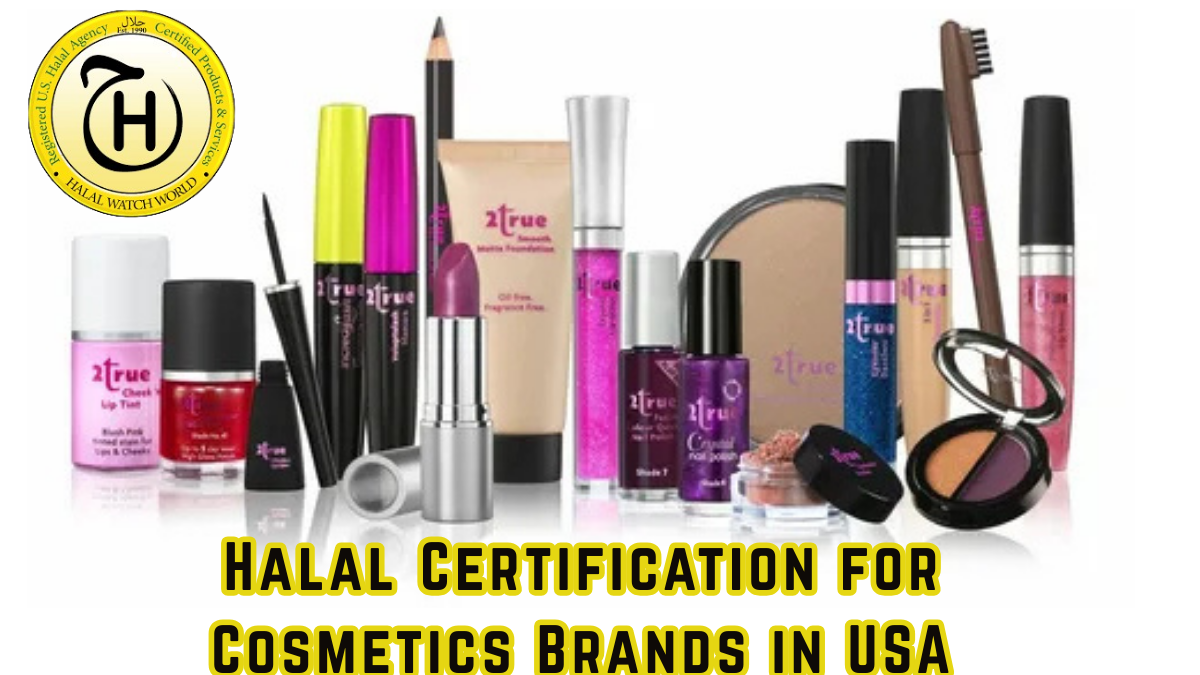The global beauty industry has witnessed an extraordinary transformation with the rapid expansion of halal beauty products. As the Halal Cosmetics Market, valued at USD 47.14B in 2025, is projected to reach USD 82.37B by 2029, growing at a 15% CAGR.
Businesses worldwide are recognizing the immense potential of entering this lucrative market segment that appeals to both Muslim and non-Muslim consumers seeking ethical beauty alternatives.
Market Growth Trends
The demand for halal cosmetics certification continues to surge across diverse consumer demographics. The market gains momentum among consumers looking for natural, cruelty-free, and sustainable options.
Key growth drivers include:
- Increased awareness of halal standards
- Growing Muslim populations globally
- Rising disposable incomes in key markets
- Younger consumers attracted by influencer marketing
- Social media campaigns promoting halal beauty brands
Certification Standards
To get halal certification for cosmetics brand requires adherence to strict Islamic guidelines and manufacturing protocols. For cosmetic products to be considered halal, they cannot contain certain ingredients.
Essential requirements include:
- Complete elimination of pork-derived ingredients
- Alcohol restrictions in formulations
- All animal-derived components from halal-slaughtered animals
- Separate production lines or thorough cleaning protocols
- Prevention of cross-contamination with non-halal substances
Application Process
The cosmetics and personal care certification process begins with comprehensive ingredient analysis and supply chain documentation. Manufacturers must provide detailed information about every component used in their formulations.
Required documentation typically includes:
- Supplier certificates
- Ingredient specifications
- Manufacturing process flowcharts
- Quality control procedures
- Facility inspection reports
All equipment, utensils, and surfaces must be cleaned and sanitized before halal production begins. Employees should be trained on halal protocols, ensuring proper handling and segregation of materials.
Brand Advantages
Halal certification for cosmetics opens doors to vast international markets and builds consumer trust. This certification can significantly enhance a brand’s image and credibility.
Key benefits include:
- Access to premium pricing opportunities
- Enhanced brand credibility and trust
- Appeal to health-conscious consumers
- Natural ingredient associations
- Reduced risk of skin irritation
- Avoidance of synthetic preservatives and harsh chemicals
International Markets
Halal certification in cosmetics has become essential for brands seeking international expansion, particularly in Muslim-majority countries. Indonesia’s Halal Product Assurance Agency (BPJPH) has officially begun drafting halal certification guidelines for cosmetics.
This demonstrates how governments are formalizing halal requirements. European and North American markets also show increasing acceptance of halal beauty products, driven by growing awareness of natural and ethical beauty alternatives.
Certification Partners
Selecting trusted partner for halal certification in USA requires careful evaluation of certification bodies’ credentials, international recognition, and industry expertise. Reputable certification organizations maintain accreditation from major halal standards bodies.
Look for certifiers who offer:
- Comprehensive support throughout certification
- Pre-assessment consultations
- Gap analysis services
- Ongoing compliance monitoring
- Clear timelines and transparent pricing
- Regular communication updates
US Market Entry
For businesses seeking to get halal certification in USA, the process involves identifying appropriate certification bodies with FDA recognition and halal standards expertise. American companies benefit from working with certifiers who understand both Islamic requirements and US regulatory frameworks.
The certification process typically takes 3-6 months depending on product complexity and manufacturing setup. Companies should budget for initial certification fees, ongoing audit costs, and potential facility modifications.
Implementation Steps
To successfully get halal certificate for your business, develop a comprehensive implementation plan addressing ingredient sourcing, supplier relationships, manufacturing protocols, and staff training.
Essential steps include:
- Create detailed standard operating procedures
- Establish clear segregation protocols
- Appoint a dedicated halal compliance officer
- Coordinate with certification bodies
- Ensure ongoing adherence to halal standards
- Facilitate smooth annual audits
Industry Leaders
Partnering with a top halal certification company ensures access to industry expertise, international recognition, and comprehensive support services. Leading certification bodies offer value-added services including market research, consumer insights, and marketing support.
These partnerships provide:
- Networking opportunities with other halal-certified brands
- Connections with suppliers and distributors
- Valuable business relationships for market expansion
- Growth opportunities in emerging markets
Best Option in The US Market
Halal Watch stands as a pioneering organization dedicated to promoting halal standards across various industries, with particular expertise in cosmetics and personal care certification. The organization provides comprehensive guidance to businesses seeking halal certification, offering educational resources, industry insights, and market analysis.
Through their extensive network and deep understanding of halal requirements, Halal Watch helps brands navigate certification complexities while building consumer trust and market credibility. Their commitment to transparency and excellence makes them a valuable resource for companies looking to expand into the growing halal beauty market.
Future Projections
The global market size was valued at USD 47.76 billion in 2024 and is anticipated to reach USD 115.03 billion by 2032, indicating sustained growth opportunities for certified brands. This expansion creates compelling business cases for investing in halal certification.
The future of halal cosmetics looks increasingly promising as consumer awareness grows and regulatory frameworks mature worldwide. Brands that establish early market presence through proper certification will likely capture significant market share.
Companies investing in halal certification today position themselves advantageously for long-term success in this rapidly expanding market segment, building brand loyalty among conscious consumers while accessing lucrative international opportunities.
Read more exciting blogs on wowtobechic.com

